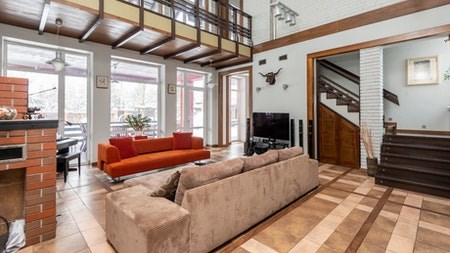Homeowners who have fallen behind on property maintenance or have taken a few missteps with renovations might not be aware that there could be a few features that can make any home somewhat unsellable. Those who are struggling to sell should consider what features of the home and aspects of the sale could be making it trickier to close the deal.
Regional Director and CEO of RE/MAX of Southern Africa, Adrian Goslett, sympathises with homeowners and admits that it can be easy to fall into the trap of forgetting to tend to some of the upkeep of a property.
“However, if your home starts to appear neglected and in a state of disrepair, then you’re hurting your chances of selling your property at the best possible price. When buyers walk-through the home, even small issues can give the impression that other things may also need fixing. This can lead to low-ball offers which will make it difficult to sell if you are unwilling to drop on the asking price,” he explains.
The best way to avoid falling behind on maintenance is to tackle the issues as soon as they arise and to form a regular maintenance plan to ensure that the home is always kept in prime market condition.
“If this is one of many homes you own in a property investment portfolio, then the key to stay on top of it all is to form good relationships with contractors and reputable property professionals who can assist you with managing your real estate investments in a cost-efficient way,” he adds.
The next fumbling block that can make a home difficult to sell is any questionable DIY projects or additions that fail to meet compliance regulations or municipal approval. “Doing it yourself can save you money, but it can end up costing you on the resale value of the home if you fail to do a good job,” he warns.
If you do tackle a DIY project, Goslett advises that the project or addition should be neat, structurally sound, and well-built. “You also need to ensure that you acquire the necessary planning approval for any permanent additions as you will not be able to sell the property without these in place. It is also advisable to get professionals to install or at least sign off on any electrical or plumbing installations, as these kinds of projects will need to be up to code before you can receive the necessary compliance certificates for any sale,” Goslett warns.
Apart from this, the general appearance of the home is another obvious aspect that should not be overlooked. Goslett highlights that an untidy garden or backyard, dirty walls, and laundry laying around can be detrimental to the sale of a property, especially if these are visible in the listing photos.
“Buyers are initially drawn to a property based on how it looks in the listing photographs, so you need to ensure that the home is at its most appealing when the listing photos are taken. Staging your property is another key aspect to making sure your home sells. It can be tricky to sell a home if the furniture makes the rooms feel small and nonfunctional – the right staging can help buyers imagine themselves in the space and make the home more appealing.”
One of the final and probably most important aspects to consider is whether you have partnered with the right real estate brand.
“Not all agents and agencies are the same. Some agents might not be working hard enough to ensure that the property sells. This is why you should work with an agent from a reputable brand with the largest possible network of buyers and sellers. This will give you the best chance of selling your home in the shortest amount of time and at full value. Agents can also easily advise on whether the property is on the market at the right asking price and if the home needs any other adjustments to ensure that it sells. If you are struggling to sell, speak to your local agent for more free advice,” he concludes.
Writer : Kayla Ferguson




